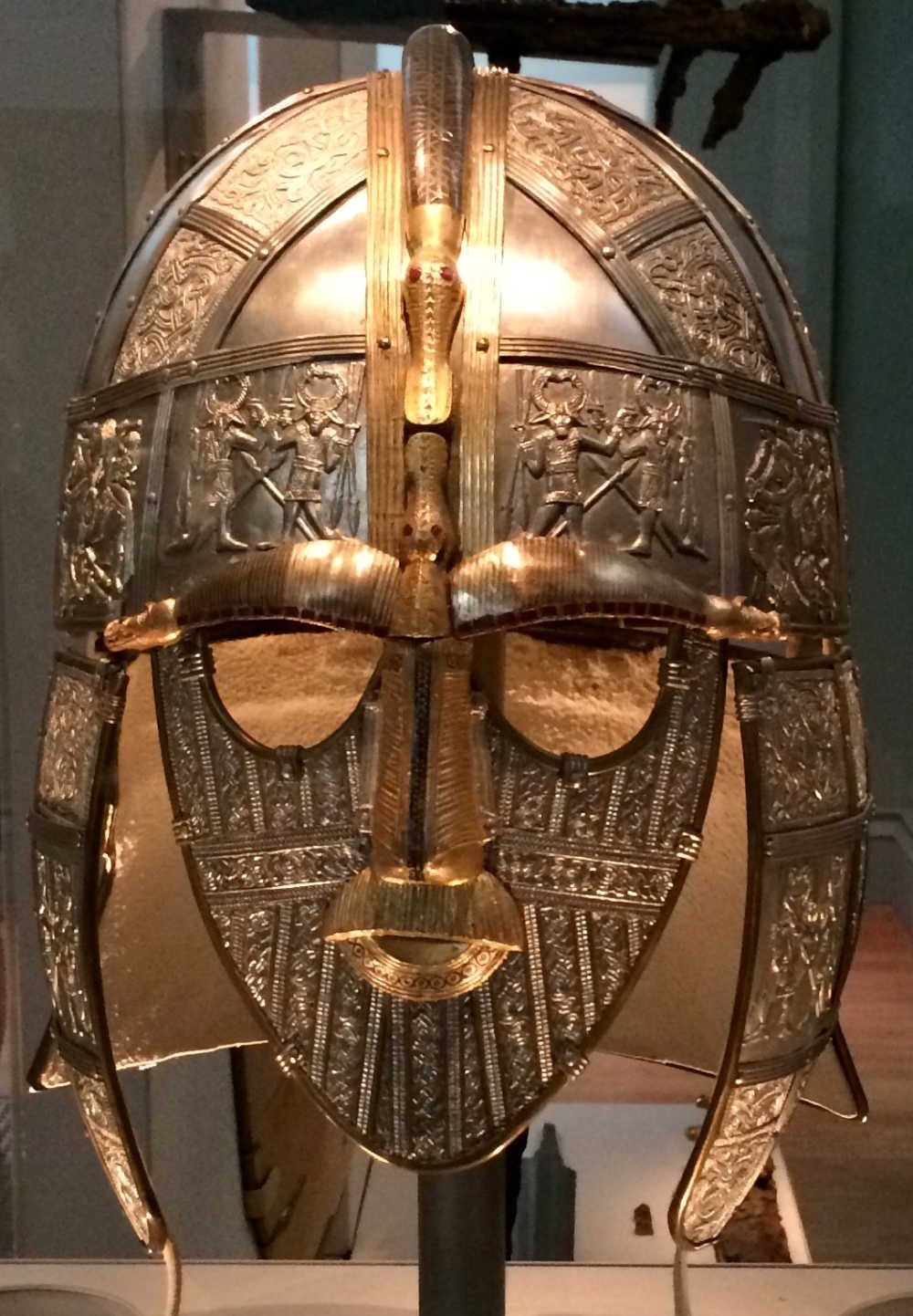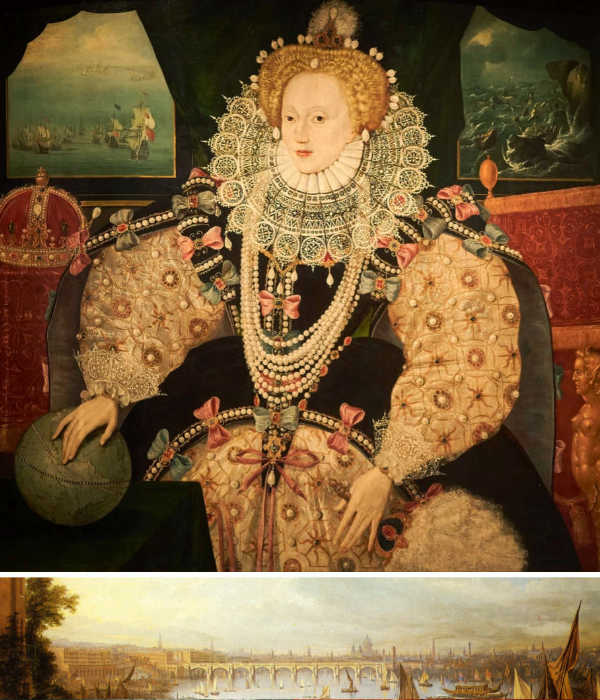As it was in the time of King Edward
Dark but golden ages

The Norman Conquest prolonged the Dark Ages in England by at least a century.
The fall of the Roman Empire in the west created a chasm far greater than the Norman Conquest six centuries later. Wealth and property, laws, learning and technology were lost on a massive scale. Infrastructure decayed and so did both the knowledge and resources to rebuild. With it went much of the written historical record. The narrative literally goes dark, often for decades at a time. In Britain and what became England, we are reliant on a few historians of their period to light candles for us. Gildas and Bede, later Asser and the historical efforts of the early Anglo Saxon Chroniclers. They are witnesses who can be unreliable and at least sometimes implausible, but mostly they are terrifically helpful as without them we would be dependent on archeological detective work to reconstruct vast swathes of history. Archeology can work wonders; we shouldn’t ask it to work miracles.
Yet as time progressed, records return. By the time the ninth century turns into the tenth, the shadows begin to lift. Law codes and writs become more commonplace, showing off what royal government was already doing. Alfred sponsors a revival in learning, and is even caught in the act reflecting on his role as king. There is ecclesiastical teaching from Wulfstan and Dunstan, with the latter’s coronation service still forming the basis of what is used today. It was not a world born anew - it had been there all this time - but it becomes visible once again through greater literacy, greater wealth and resources to sponsor it.
Very little of this has pierced the event horizon created by the Norman Conquest.
The Anglo Saxon period becomes England’s pre-history. Evidence emerges through the Conquest itself: its causes, potential weaknesses in the English State, the Norman inheritance, the contrast between Anglo Saxon and Anglo Norman societies. Anything further has been largely left to the specialists. It is telling that over subsequent years King Arthur and King Alfred have taken their turns in the popular imagination. Both of them legends, but only one of them a myth.
This divide would of course have meant nothing to Edward the Confessor and his nobility. Edward could proudly trace his lineage back to Cerdic, who landed in what is now Hampshire with five ships somewhere around the turn of the sixth century and went on to be the first king of Wessex.
As the Angles, Saxons and other arrivals established themselves, a framework of kingdoms grew up: Kent, Sussex, Essex, Wessex, Mercia, Bernicia and Deira. These sat, often uneasily, next to the legacy British kingdoms in Wales and Strathclyde. When a boat is the fastest way to travel, there is no such things as a true island, but rivalries were very much internal. Despite all of this, though, from early on the idea of the English had taken root. Leading kings could take the title of bretwalda - an overlord of either part or all of the English or even the island. Even as kingdoms combined, with Northumbria forming from Bernicia and Deira, East Anglia emerging and Wessex absorbing rivals along the south coast, there was still very much a hierarchy. ”Kingliness,” as James Campbell put it, ”was relative.”

It was the Scandinavian attacks that created the reality of a kingdom of the English. After the Vikings had sacked the priory at Lindisfarne in 793, the ninth century saw increasingly ferocious raids with armies raiding in England over the long term. Northumbria, East Anglia and Mercia were viciously attacked. Wessex, having lost a string of kings in quick succession, saw Alfred clinging on in the Isle of Athelney in Somerset. His recovery, alongside the other old kingdoms rather than as just another conqueror, allowed a single kingdom to emerge under his son and grandson despite a strong Danish presence north of the Severn and Trent.
The English had developed a settled identity precociously early among the European powers. The Anglo-Saxon kings of the tenth century, building on the achievements of Offa in Mercia and Alfred in Wessex, had created a single kingdom. At its best, a sacrosanct king headed a well-defined structure of authority (consisting of shires, hundreds and boroughs), which used a uniform system pf taxation and charters and a common language in the Anglo Saxon of writs and charters.
M. T. Clanchy, England and its Ruler 1066-1272
It may not have all been plain sailing, but a single kingdom created strength and wealth. Towns prospered, and a strong royal government was able to cash in. The tenth century saw something of a renaissance. Money for the Church, literacy, buildings and jewellery was starting to flow.
The Anglo-Saxon economy must always have been of some considerable sophistication. Even in the pagan period the survival of thousands of brooches cast from moulds, very few of them cast from the same mould as another, indicates an abundant supply of goods which cannot have been home made and suggests fairly complicated mechanisms of exchange… A complex economy means a complex society
James Campbell, The Anglo-Saxons
On the Continent, by comparison, the big royal edifices of the Carolingian and Ottonian empires had lost their hold. Power was becoming local, with all the conflict that went with it. As the Northmen took what became Normandy Rollo, their first duke, refused to kneel for the French king and instead upended him. That set the tone.
England would be severely tested at the end of the tenth century with the return of Viking raids that built into royal armies of invasion and conquest. English divisions and the willingness of some to deal with the invaders chronically weakened the kingdom’s military defence. Both unity and ability were lacking at a crucial time. But England survived for as long as it did by doing what it could now do best: raise staggering amounts of money to pay raiders to go away. It kept on being able to do this to the point where the Dane Swein and his son Cnut found the benefit of ready access to that pot so tempting that they displaced the house of Cerdic in 1016. Even then, the cash kept on coming.
So if for Edward recent history was a lesson in the perils of instability - more so as he had been exiled as an heir of Aethelred and Edmund Ironside - to the rest of Christendom England could be something of a golden goose. For most, the crown would be a step up in both prestige and wealth. That explains the level of interest whenever cracks showed in the succession. England’s underlying strength also shines through when both Swein and Cnut, and then William manage to take it whole.
Looking back, even William the Conqueror could hark back to the 'good old days' of King Edward. In 1100, Henry I put that idea right at the front of his Coronation Charter. Whatever England's weaknesses were - and it had a fair few - within living memory it was plausible enough for it to become something of a byword for a golden age of law, order, stability and, all these heavily imply, wealth.
None of this - good or bad - appeared overnight. Nor did it happen only as prelude to a Norman Conquest that was no way inevitable. The ‘dark ages’ were long over by the eleventh century, and once we allow more information to cross the great divide it is clear that
Those six centuries were not simply a barbarous prelude to better things. They were an integral part of the history of one of the most successful human organisations there has ever been.

